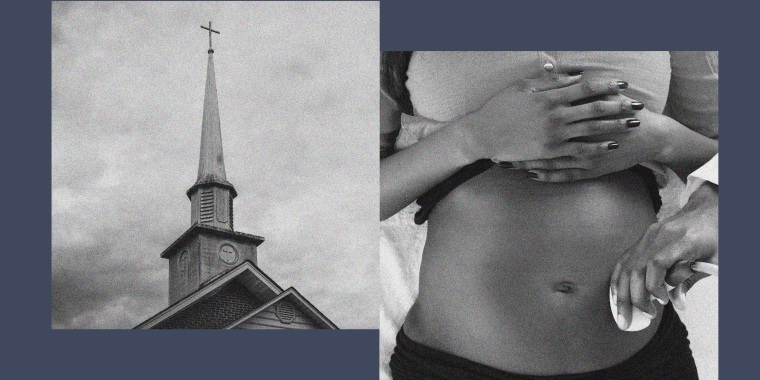Some Black women religious leaders, churchgoers and others in Christian communities said they were figuring out how to think about the ways abortion squares with their faith following the Supreme Court’s decision last month to strike down more than 50 years of having a constitutional right to abortion.
NBC News interviewed eight Black women in churches across the country about the role religion plays in their views of their reproductive rights, a nuanced topic that is rarely discussed in the Black church. While some women advocate for control over their own bodies, others use the Bible as a foundation for their beliefs to condemn abortion.
Barbara Williams, 78, Houston: Anti-abortion rights Christian counselor advises women based on the commandment “Thou shalt not kill.”
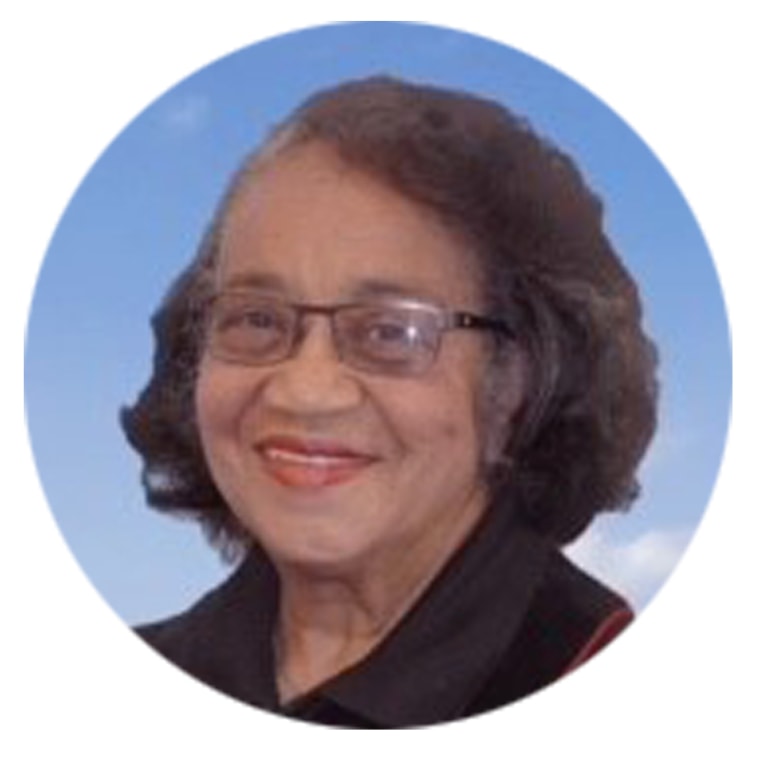
Church has been a constant for Barbara Williams since age 5. Williams, who has a master’s degree in psychiatric counseling, has helped generations of fellow churchgoers for more than 50 years, and for the last three decades her work at Wheeler Baptist Church in Houston — whose membership is nearly 20,000 — has focused on counseling individuals, families and occasionally married couples.
Many seeking Williams’ counsel are students who attend the nearby Texas Southern University, Rice University or the University of Houston, and are dealing with depression and anxiety related to finding their identity, finding a life-partner and finishing school.
“They’re in crisis,” Williams said about the individuals she counsels. “They’re just trying to deal with life, and they’re having difficulty doing it.”
Among them are women who seek guidance on unplanned pregnancies, and are considering an abortion. Williams said she advises them to make such a decision only after they’ve fasted and prayed, because “total focus is when you can get the best answers,” she said.
“My stance on abortion is just what the Bible says — ‘Thou shalt not kill’ — and that includes a child in the womb,” she said.
While Williams said she does not support abortion, following the Supreme Court’s decision to overturn Roe v. Wade, she said she struggles with lawmakers “having to tell me what my choices are.” She also said the decision will put women seeking an abortion illegally in unsafe situations. While the church does not disown women who decide to have an abortion, its stance remains the same.
Williams said women who’ve experienced an unplanned pregnancy received support from the church, with some families in the church even adopting children and the church providing the pregnant women with supplies. After Williams’ own daughter became pregnant at 19, she and her husband supported their daughter and grandchild while their daughter raised her child and earned a bachelor’s and master’s degree.
“The thing that I like about the Black church — it’s still a village,” Williams said. “We are a big family. If you are in trouble, this is where you call.”
Eugenia Osei, 22, Anne Arundel County, Maryland: Less judgment and more intergenerational support.
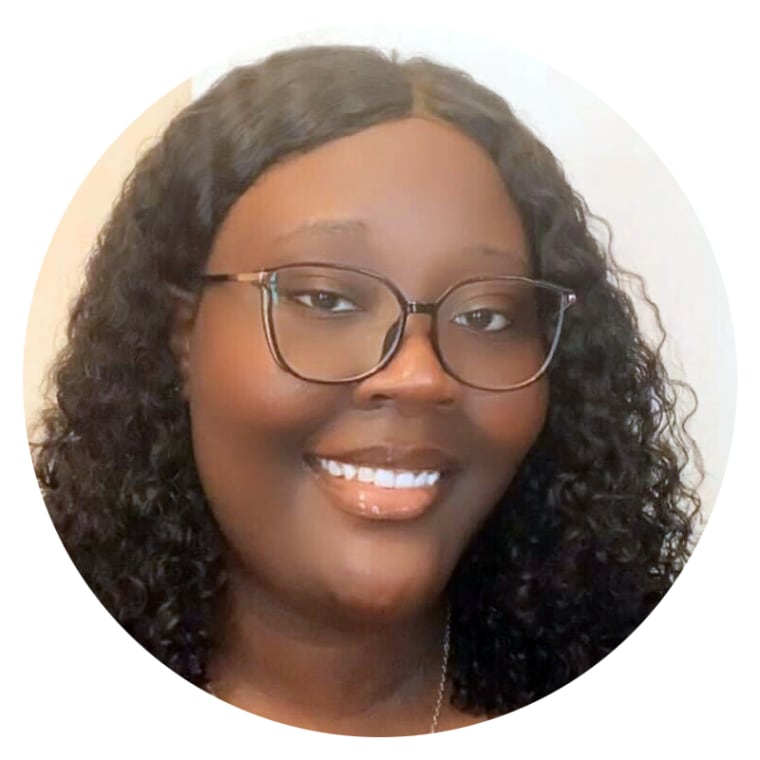
Eugenia Osei has attended Queen of Apostles in Alexandria, Virginia, since the age of 8. Osei said her majority-Black Catholic church, with parishioners of all ages, is a lively, inclusive place where she feels comfortable because “everyone there looks like me.”
Osei, a nursing student at Marymount University, said many of the peers she attended church with while growing up stopped going once they hit college age. One friend told Osei she attends less frequently because she does not feel comfortable, as older church members always make comments about her weight.
“I feel like the judgment they’ve experienced has kind of ruined that church experience for them,” Osei said. “So, it’s like now, like they don’t come as often or they resorted to going to a different church from … the church they were raised in.”
That judgment, Osei said, may range from how a person dresses each Sunday to a person’s politics around abortion.
“For me, I’m coming to hear the word of God,” she said. “Everyone’s spiritual path is different, and I feel like the judgment on how we like, do things … has to be reduced because it’s what’s pushing us out of the church.”
While she said she hasn’t heard church members or leaders discuss the Supreme Court’s abortion ruling, she said older generations of churchgoers, especially, could stand to be less judgmental about this issue.
“Women in the church — a lot of us are so strong in our faith,” Osei said. “So why, you know, judge us and put us down over something that one, we might need to do, or two, it’s our right to do it?”
Yvette Flunder, 66, Oakland, California: Disappointed the court’s decision cited religion.
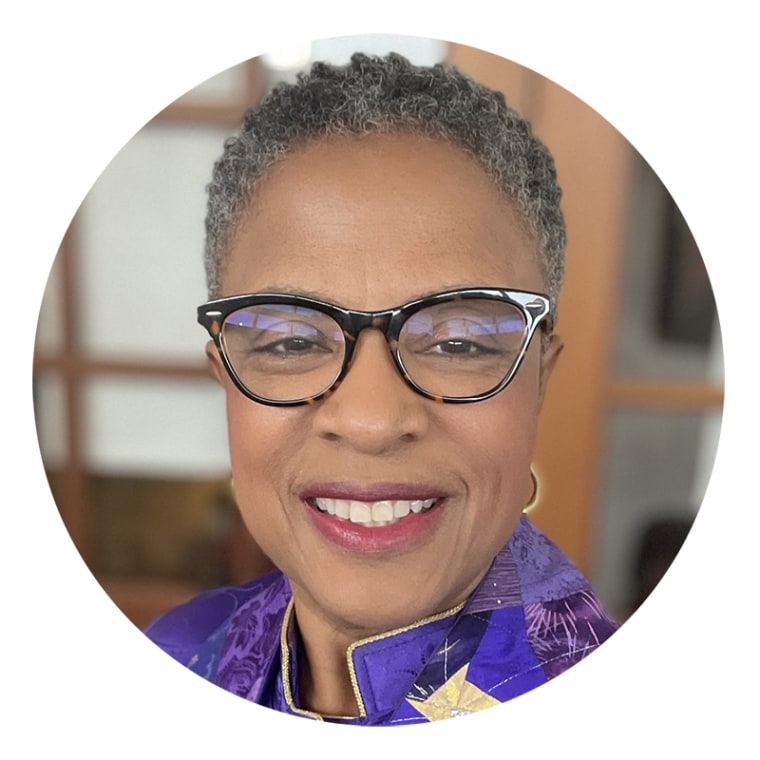
Yvette Flunder didn’t hear much about abortion growing up in a conservative Pentecostal church, but she knew it happened.
“It was all very secretive,” said Flunder, who was raised in the Church of God in Christ and identifies as same-gender-loving. “There were just lots of closets, and abortion was one of those closets.”
Flunder, an advocate for LGBTQ inclusive churches and the presiding bishop of the Fellowship of Affirming Ministries, said she believes that all pregnant people should have access to abortion. Either way, Flunder said her members can come to her and expect support for their decisions, not judgment.
“I’ve had young women come to me and say, ‘I’m pregnant and I don’t know what to do, pastor,’” she said. “And I said, ‘What is it that you would need?’”
Her church also provides resources such as money and day care services to women who are struggling to afford a child.
“I’m a person who is pro a woman’s right to choose, but I’m also pro having a community in place if that person wants to give birth,” Flunder said. “But forcing her to give birth without having something concrete in place to help is wicked to me.”
Flunder condemned the recent ruling to overturn abortion rights. She’s even more disappointed that the court’s decision cited religious reasoning. She said this gives more weight to the ruling and allows supporters to say that this is God’s will.
“It fails to understand that a woman does have control over her own body,” Flunder said.
Kendra Johnson, 51, North Carolina: Remembering the film, "The Silent Scream."
As a teenager in Arkansas, Kendra Johnson said she watched the anti-abortion film “The Silent Scream” in her sex education class at Catholic school. Johnson said the video showed a fetus being aborted and emitting a scream out of pain.
“Abortion was murder,” recalled Johnson, referring to the messages she heard growing up in the Catholic Church, adding that it “did not focus on the health and the well- being of the actual person who was pregnant, but on this unborn fetus.”
Johnson said she initially absorbed the messaging because of the church’s consistent stance against abortion and the death penalty. However, Johnson said she started to lose trust in the institution over the church’s position on race, sexual orientation and gender identity.
“Probably around my sophomore year in high school, it just became clear that a lot of the church doctrine was deeply problematic,” she said.
Johnson said she is no longer a practicing Catholic, meaning that she does not attend weekly church services or financially support the institution.
Now as the director of Equality North Carolina, she worries that the court’s ruling on abortion rights will make people even more vulnerable to harm.
“We should all have bodily autonomy,” she said, adding that the overturning of the precedent will make pregnant people more at risk for “life-threatening situations that are completely avoidable.”
Sontaia Briggs, 46, Brooklyn, New York: 'I don’t think religion belongs in the choice.'
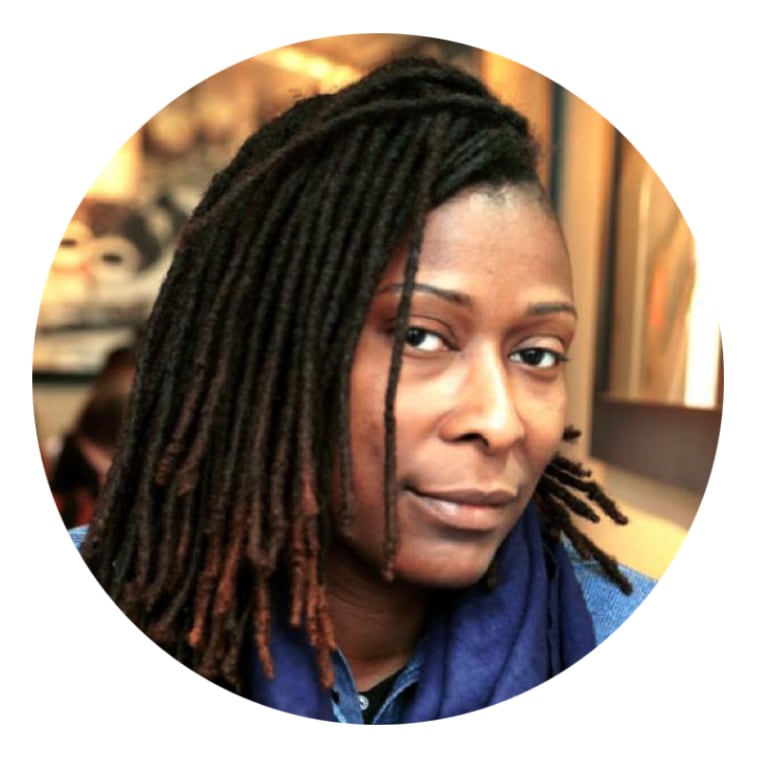
Sontaia Briggs, a nondenominational Christian in New York City, said young women and girls always shouldered the stigma for abortion. Briggs recalled that one of her family members almost died having what she describes as an “underground abortion” due to these fears.
“There was always a lot of shame placed on the girl who was pregnant, but it takes two people for this to happen,” Briggs said, adding that today’s climate is reviving concerns about illegal abortions. “People might make one of these choices that might not end well.”
Briggs, who supports abortion rights, said that church doctrine should not play a part in a person’s decision.
“I don’t think religion belongs in the choice, personally,” she said. “We’re talking about lives — real lives that actually matter.”
“It’s just a matter of our religion being used as this way of controlling these people, and what you feel like they should be doing and what roles they have to play,” she added.
Briggs said she was shocked that the Supreme Court overturned Roe.
“For some reason, I guess I still had hope,” she said. “I was just really surprised, disappointed and incredibly scared for people who are already in a bad situation.”
Gina A. Dorsey, 62, Towson, Maryland: Co-led a talk among Christian women about abortion after the Supreme Court decision.
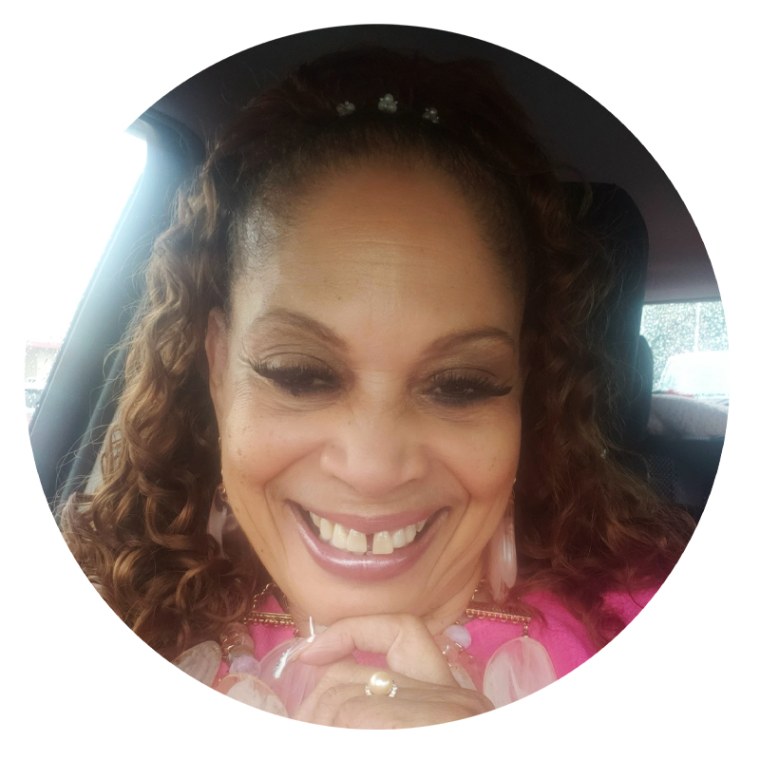
While Christian doctrine condemns premarital sex, spiritual leader Gina A. Dorsey says it’s simply just not the way all people live.
Dorsey launched Through a Kingdom Place for Me International Outreach Ministries in 2006 to reach women and youth, and has since counseled many women who considered getting an abortion.
Following the court’s most recent decision, Dorsey, along with other women’s ministries, held a confidential virtual meeting with approximately 25 women from the Maryland area who voiced their concerns about the ways the ruling may affect their everyday lives.
The state codified legal abortion access in 1991, but at the time of the meeting, it was unclear to some attendees how the Supreme Court ruling would affect their reproductive rights or if their state’s abortion laws would change. The meeting was an opportunity to address concerns in a moment of uncertainty, without judgment.
“We need to have more meetings where we’re not putting women down for their decisions, but building them up,” Dorsey said.
While abortion is still legal in Maryland, the women discussed whether access would change, the risks of potentially having to get an illegal or underground abortion and the mental impact of being forced to have a child because of rape or incest. Many women from low-income households also expressed concerns over paying for an abortion because of a lack of health care coverage, a longstanding problem.
In addition to more education around sex and health, Dorsey said she would like to see “more resources that the women feel that they can take advantage of, because there are resources out there. However, somehow that information isn’t getting to certain communities and certain women of color — that they have things available to help them make decisions.”
Renair Amin, 46, Queens, New York: ‘I had a pregnancy terminated to save my life.’
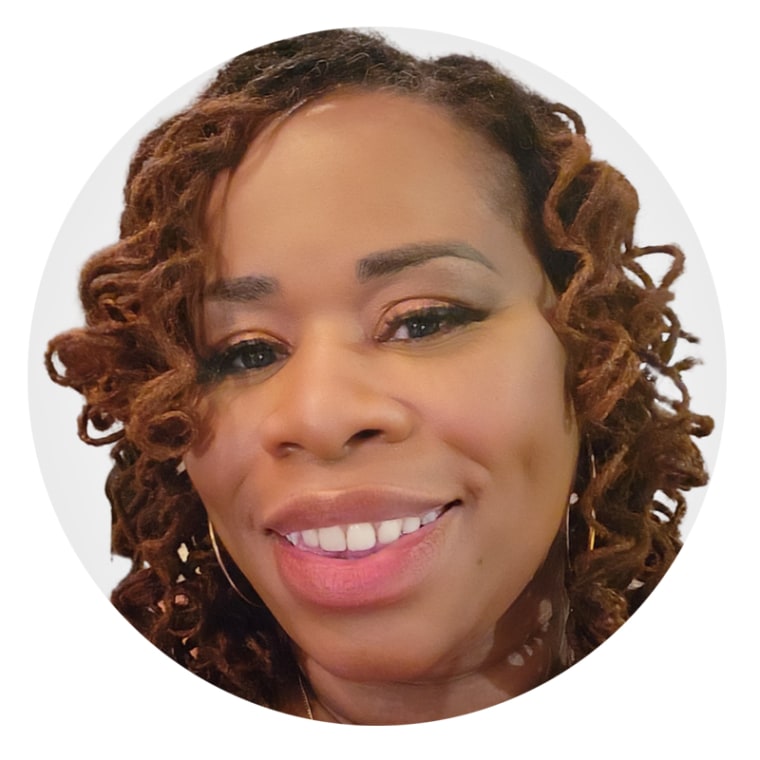
As a young person growing up in the church, Amin said she did not hear about abortion and was told not to have sex before marriage. Many of these beliefs were also echoed at home.
“Abortion was wrong. … It didn’t matter the reason, it was just wrong,” said Amin, who left the Christian church seven years ago and now identifies as spiritual. “Being pregnant outside of marriage was something to be shameful of.”
But when doctors discovered she had an ectopic pregnancy, a condition that occurs when a fertilized eggs attaches itself outside the uterus, having an abortion became a reality.
“I had to have a pregnancy terminated to save my life,” Amin said. “It is not as cut and dry as everyone is making it seem.”
Amin said she is sad about the overturning of abortion rights, adding that the role of the church is ironic.
“I always find it very odd that the Bible gets to be used as this tool of healing, but it’s really becoming a tool of oppression,” she said.
Love Lundy, 20, Atlanta: Abortion highlights divide between old and young churchgoers.
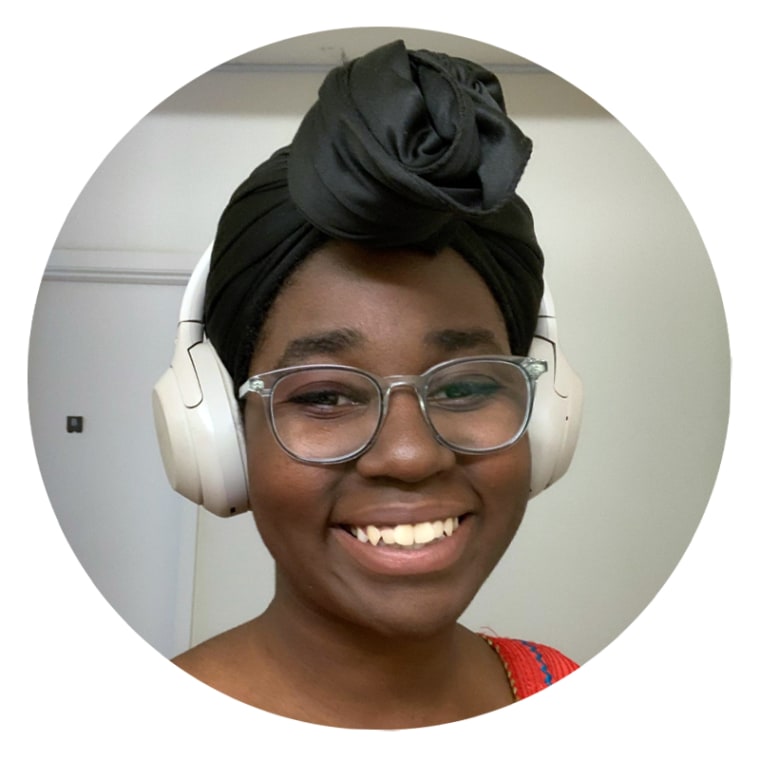
Love Lundy is bucking a trend.
Attendance at Black churches among people under 40 has been dropping. Roughly only 30% of Black millennials and Generation Z adults go to Black churches, compared with almost half of Black baby boomers.
Lundy, the daughter of a Presbyterian pastor, still attends virtual services at her mother’s church, but she knows that a lot of her peers are put off by judgment within church walls, which keeps them out of the pews. For example, at her mother’s church, her attire goes unnoticed, but she remembers attending her grandmother’s church in Alabama as a high schooler, and being judged for wearing shorts to church services.
“It got back to my grandma,” recalled Lundy, who said her grandmother was already a stickler for wrinkle-free jeans. “Y’all are going to talk to my grandma about my clothes?”
Similar judgment trickles into issues like abortion and LGBTQ rights, said Lundy, who is a nonbinary femme. If anything, these topics have been avoided among churchgoers, but she said it would help to have more conversations about them, especially, if churches want more young people to engage.
Lundy said her grandmother’s church was missing the voice of young people. She said this exists because younger generations of “kids kind of just didn’t go to church.
“Generation has such a huge part in this conversation, especially coming from a Christian lens,” Lundy said. “There’s a gap,” she added. “People on both sides don’t want to communicate within the generation, and to other generations.”
